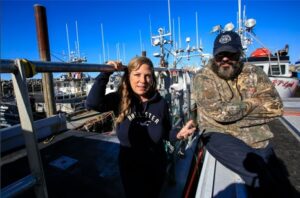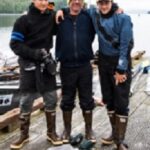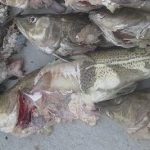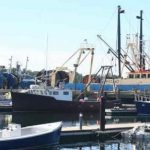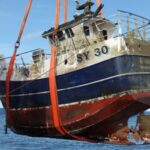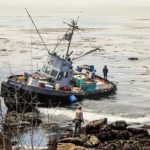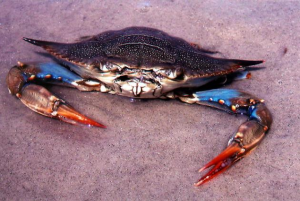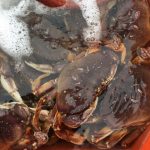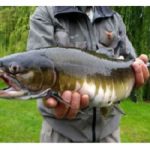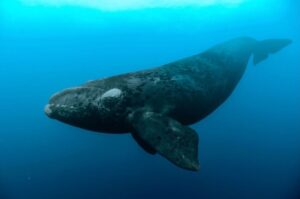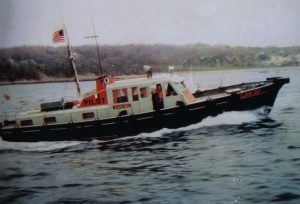Daily Archives: September 12, 2015
The flaws in quota-based fishery management – Barry Darby, St. John’s
 Quota-based management plans are based on certain assumptions which are subject to numerous potential errors. Setting quotas requires substantial, accurate knowledge of the stock to be harvested before setting the appropriate level of harvest. We assume we know the size of the stock. This is difficult to determine accurately since it is done by survey sampling which has its own built-in statistical errors. We assume we know the correct percentage to catch (the optimal TAC). In lobster harvesting, we catch more than 50 per cent of the available marketable,,, Read the rest here 12:31
Quota-based management plans are based on certain assumptions which are subject to numerous potential errors. Setting quotas requires substantial, accurate knowledge of the stock to be harvested before setting the appropriate level of harvest. We assume we know the size of the stock. This is difficult to determine accurately since it is done by survey sampling which has its own built-in statistical errors. We assume we know the correct percentage to catch (the optimal TAC). In lobster harvesting, we catch more than 50 per cent of the available marketable,,, Read the rest here 12:31
“The Gray Curtain: The Impact of Seals, Sharks & Commercial Fishing on the Northeast Coast,”
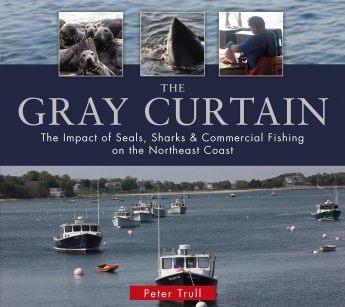 In the book’s first section he tells what kinds of seals are around, describing their behavior and ecology. He tracks the rise of gray seals since 1990 from a few to thousands, discussing the antipathy fishermen have to them while giving us facts about their eating habits. He is not a sentimentalist but looks at the realities of animals’ relationship to their predators and prey, as well as the complexities of human interaction with their environment. Finding a young harp seal on the outer beach bloodied by coyotes, he leaves it to become part of the food chain, only to find people attempting to save it. Read the rest here 11:02
In the book’s first section he tells what kinds of seals are around, describing their behavior and ecology. He tracks the rise of gray seals since 1990 from a few to thousands, discussing the antipathy fishermen have to them while giving us facts about their eating habits. He is not a sentimentalist but looks at the realities of animals’ relationship to their predators and prey, as well as the complexities of human interaction with their environment. Finding a young harp seal on the outer beach bloodied by coyotes, he leaves it to become part of the food chain, only to find people attempting to save it. Read the rest here 11:02
Who seems to be fighting who? – Battle for control of North Carolina seafood is complicated

Alaska Bering Sea Crabbers announces US-Russia pact on illegal fishing
 A Seattle-based crabbing industry association is announcing a bilateral agreement between the United States and Russia that targets illegal, unregulated and unreported fishing. The Alaska Bering Sea Crabbers says the agreement was signed Friday as part of the 26th U.S.-Russia Intergovernmental Consultative Committee on Fisheries meeting in Portland, Oregon. The crabbing group represents 70 percent of the crap harvesters in Alaska’s Bering Sea and Aleutian Islands region. The association says the agreement signed Friday targets blatant poaching,,, Read the rest here 09:43
A Seattle-based crabbing industry association is announcing a bilateral agreement between the United States and Russia that targets illegal, unregulated and unreported fishing. The Alaska Bering Sea Crabbers says the agreement was signed Friday as part of the 26th U.S.-Russia Intergovernmental Consultative Committee on Fisheries meeting in Portland, Oregon. The crabbing group represents 70 percent of the crap harvesters in Alaska’s Bering Sea and Aleutian Islands region. The association says the agreement signed Friday targets blatant poaching,,, Read the rest here 09:43
Ordnance found in fishing gear safely removed from RCMP Harbour Grace
 RCMP say the roads around the Harbour Grace detachment have been re-opened, after an explosive disposal unit safely removed a “suspected military ordnance” from the building. Police evacuated the detachment Friday afternoon, after a fisherman dropped off a “large military-type shell” he found in his fishing gear. According to a news release, RCMP say the ordnance was dropped off around 1:30 p.m. NT. Read the rest here 09:12
RCMP say the roads around the Harbour Grace detachment have been re-opened, after an explosive disposal unit safely removed a “suspected military ordnance” from the building. Police evacuated the detachment Friday afternoon, after a fisherman dropped off a “large military-type shell” he found in his fishing gear. According to a news release, RCMP say the ordnance was dropped off around 1:30 p.m. NT. Read the rest here 09:12
New Bedford Working Waterfront Festival named in North America’s 100 Best Events for 2016
 The Working Waterfront Festival is a project of the Community Economic Development Center of Southeastern MA, a non-profit organization. The free festival, a family friendly, educational celebration of New England’s commercial fishing industry, features live maritime and ethnic music, fishermen’s contests, fresh seafood, vessel tours, maritime authors, cooking demonstrations, kid’s activities and more. It all takes place on working piers and waterfront parks in New Bedford, MA, America’s #1 fishing port, on the last full weekend in September. The 2015 Festival takes place on September 26 & 27. Read the rest here 08:53 For more information, visitwww.workingwaterfrontfestival.org.
The Working Waterfront Festival is a project of the Community Economic Development Center of Southeastern MA, a non-profit organization. The free festival, a family friendly, educational celebration of New England’s commercial fishing industry, features live maritime and ethnic music, fishermen’s contests, fresh seafood, vessel tours, maritime authors, cooking demonstrations, kid’s activities and more. It all takes place on working piers and waterfront parks in New Bedford, MA, America’s #1 fishing port, on the last full weekend in September. The 2015 Festival takes place on September 26 & 27. Read the rest here 08:53 For more information, visitwww.workingwaterfrontfestival.org.
Common sense and disaster relief – Paul Cohan, Gloucester

NOAA and it’s ENGO “Partner’s” issues report on at-sea monitors
 NOAA Fisheries this week stepped further into that maelstrom with a largely internally generated report that focuses on cost comparisons between the current manual system of at-sea monitoring and electronic monitoring. It also released an independent review of the NOAA report. The NOAA report, generated with the assistance of the Gulf of Maine Research Institute and other non-governmental organizations, concedes a wide array of assumptions — it is based on hypothetical Northeast multispecies and Atlantic herring and mackerel fisheries — and accepts that it is merely “a starting point for developing future [electronic monitoring] program designs.” The conclusions? Read the rest here 08:14
NOAA Fisheries this week stepped further into that maelstrom with a largely internally generated report that focuses on cost comparisons between the current manual system of at-sea monitoring and electronic monitoring. It also released an independent review of the NOAA report. The NOAA report, generated with the assistance of the Gulf of Maine Research Institute and other non-governmental organizations, concedes a wide array of assumptions — it is based on hypothetical Northeast multispecies and Atlantic herring and mackerel fisheries — and accepts that it is merely “a starting point for developing future [electronic monitoring] program designs.” The conclusions? Read the rest here 08:14
Fraser River pink salmon run a poor haul for U.S. fishermen
 The fishery for Fraser River pink salmon has ended for local U.S. fishermen — one marked by low catches here but another record run in parts of Alaska that helped push down prices. “We’re stuck with low price and low production. It is a horrible combination,” said Pete Granger, a reefnetter who fishes in Legoe Bay. Fraser River pink runs occur in odd years, and commercial fishermen who went out this year thought they would have a good season, given the Pacific Salmon Commission of 14.4 million. That estimate was based on the abundance of fry that went into the ocean two years ago. Then during the season,,, Read the rest here 07:36
The fishery for Fraser River pink salmon has ended for local U.S. fishermen — one marked by low catches here but another record run in parts of Alaska that helped push down prices. “We’re stuck with low price and low production. It is a horrible combination,” said Pete Granger, a reefnetter who fishes in Legoe Bay. Fraser River pink runs occur in odd years, and commercial fishermen who went out this year thought they would have a good season, given the Pacific Salmon Commission of 14.4 million. That estimate was based on the abundance of fry that went into the ocean two years ago. Then during the season,,, Read the rest here 07:36
Commercial fisherman John Moore – Commercial Crabber
While others still sleep, commercial fisherman John Moore, of Magnolia, wakes up 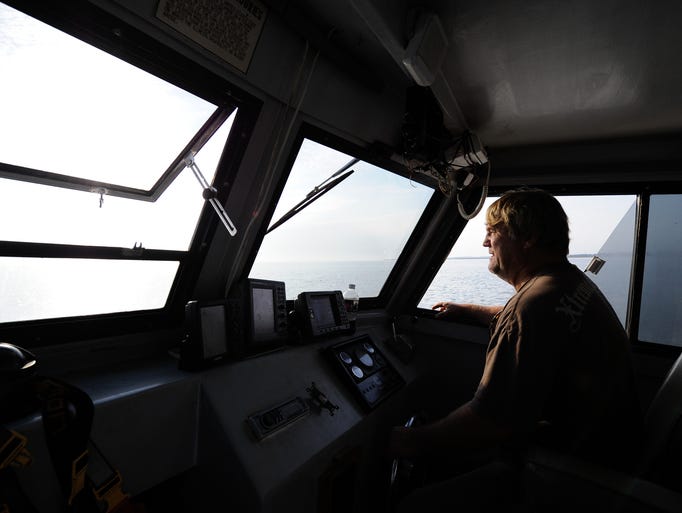 at 3 a.m. and heads east to Bowers Beach and his boat, the Bay Bee Lynne. “To me it’s my life, it’s what I like to do,” Moore said. “I do it because I love it. And like I told you it’s like a curse. Once a man does it he can’t do anything else like a normal job. You pretty much do what you want to do, nobody bothers you. Working normal jobs just doesn’t work for me.” For 27-years, Moore’s office has been the Delaware Bay,,, Read the rest here 07:16
at 3 a.m. and heads east to Bowers Beach and his boat, the Bay Bee Lynne. “To me it’s my life, it’s what I like to do,” Moore said. “I do it because I love it. And like I told you it’s like a curse. Once a man does it he can’t do anything else like a normal job. You pretty much do what you want to do, nobody bothers you. Working normal jobs just doesn’t work for me.” For 27-years, Moore’s office has been the Delaware Bay,,, Read the rest here 07:16


































